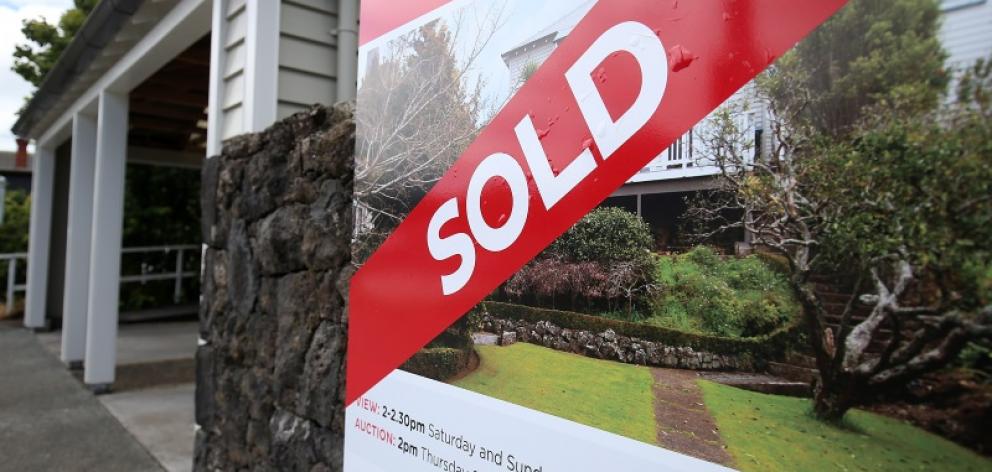
But a leading real estate agent in the city says he is seeing a different picture and that prices are on an upward trajectory.
CoreLogic senior property economist Kelvin Davidson said in a market update out yesterday that it was now taking longer to sell houses in Dunedin, and more investors in the market were driving harder bargains.
"It seems unlikely that Dunedin values are about to fall sharply, but the reduction in affordability over the past five years may mean that future growth is held back," Mr Davidson said.
Average values in the city had gone up by 81% in the last five years, up $245,000, but since the effects of Covid-19 started to be felt prices had stood still, Mr Davidson said.
"Similarly, although sales volumes have rebounded from the Covid-induced lull in April, the rise has been smaller than other main centres."
He said it should not be a surprise Dunedin’s housing market was slowing because the city’s houses had become unaffordable compared with income.
"Even despite the falls in interest rates in recent years, mortgage payments currently absorb 32% of average income in Dunedin, up from 27% five years ago.
"The key point is that reduced housing affordability tends to act as a long-term restraint on the property market."
The average time it takes to sell a house is at 29 days, after reaching a low of 21 days at the start of the year.
"That remains relatively low, both for Dunedin historically and in a current national context, but the direction of the trend is still nevertheless upwards," Mr Davidson said.
"Longer selling times hint at a shifting supply/demand balance of power, with any caution from buyers helping to explain flatter values of late."
Investors had increased their presence in the Dunedin market, overtaking first-home buyers and people moving into a new home, Mr Davidson said.
That could mean a "harder-nosed" approach to offers, which would explain a "softening" of value growth in Dunedin.
Different reality
Nidd Realty owner Joe Nidd said the CoreLogic analysis was contrary to recent figures out of the Real Estate Institute of New Zealand (REINZ) statistics.
Earlier this month REINZ said Dunedin’s median price increased to $568,000 — a record high for the city and 17% up on last year.
"It’s now at the highest it’s ever been," Mr Nidd said.
"There’s a trend line which shows it’s pretty much on a straight trajectory after a little bit of a bump around from Covid."
He said the data depended on how rolling averages were calculated, and if one were to include a winter dip it was possible to paint the picture prices had stagnated.
"But if you look at the trend line it’s still hard to deny prices are on a fairly consistent rise."
Mr Nidd said he and his agents were seeing intense competition for properties.
"It feels very much like pre-Covid times," he said.
Comments
Well of course Real Estate agents will talk it up, but I prefer to listen to senior economists and academics who aren't as bias. But in the end, house prices in Dunedin, and NZ, are among the most 'overvalued' in the world.. And lowering interest rates, just pushes them up even further..
Plus, look at what your getting for your money in Dunedin. Most houses are pre 1970s and many are in pretty bad shape, yet still commanding $400k +
Christchurch is starting to look like a better option now.
Joe Nidd is spot on as there is intense pressure from first time buyers forcing pricing upwards with some big money sales...sorry but valuers are wrong as they only get second hand knowledge once agents have sold.
Investors want to buy at bargain prices based on rental returns and they are the ones losing out.
Corelogic scramble about trying to gain information but are often weeks behind on trends.












